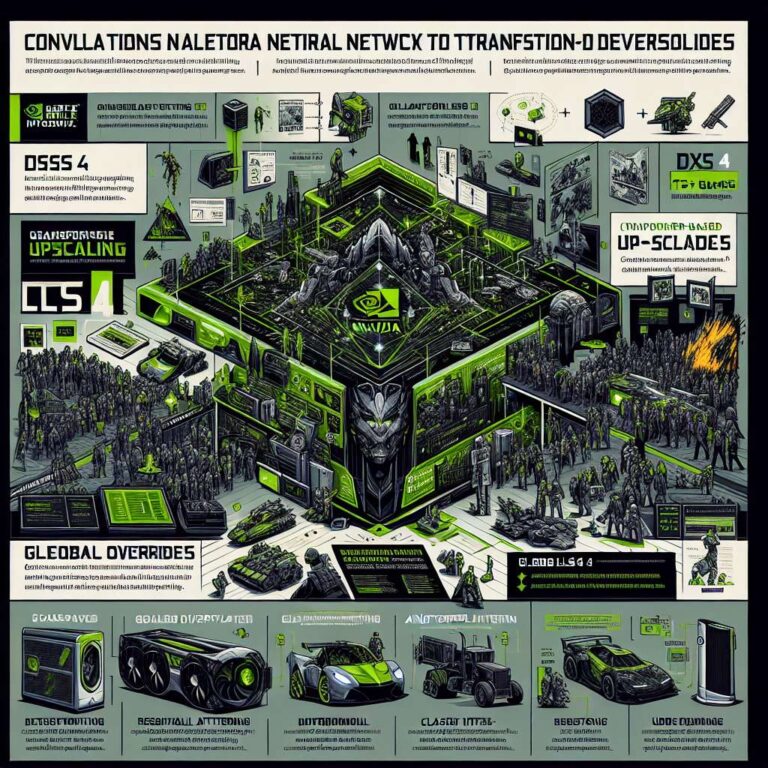NVIDIA announced at Gamescom 2025 that DLSS 4 has been implemented in over 175 game titles. The feature debuted with GeForce RTX 50-series ´Blackwell´ hardware, and selective elements, notably the core upscaling, have been made available to owners of older RTX 30-series and RTX 40-series cards. Under the hood, DLSS 4 replaces the previous convolutional neural network approach with transformer based modes, which NVIDIA says deliver more accurate results and a significant uplift in image quality at every performance preset.
The timing is deliberate. Path tracing is becoming a common demand in AAA games that already leverage heavy ray tracing, and NVIDIA framed DLSS 4 as an enabler for that transition. Higher base image quality helps make full path traced rendering practical on a wider range of hardware, the company argued, and already announced titles including resident evil requiem and directive 8020 will ship with both path tracing and DLSS 4 support. That pairing aims to let developers push visual fidelity without excluding players who rely on upscaling to hit target frame rates.
Alongside the expanded game roster, NVIDIA introduced Global DLSS Overrides. Instead of toggling upscaling or multi-frame generation per title, users can flip those features on across hundreds of DLSS override ready games via the NVIDIA app. The company positions this as a convenience improvement for players and a consistency boost for games that adopt DLSS technologies. NVIDIA also said it will restore certain legacy 3D settings that had been requested by users, including anisotropic filtering, classic anti aliasing, and ambient occlusion, giving more granular control back to gamers and enthusiasts.
The combined moves broaden DLSS 4´s reach in two ways: by improving core image quality and by simplifying deployment and configuration. Backporting select features to earlier RTX generations expands the potential install base for DLSS 4 enabled titles, while global overrides reduce friction for users who want uniform upscaling behavior. At Gamescom the message was clear: NVIDIA is pushing transformer based upscaling and gameplay friendly controls to accelerate the adoption of more advanced rendering techniques in modern games.

